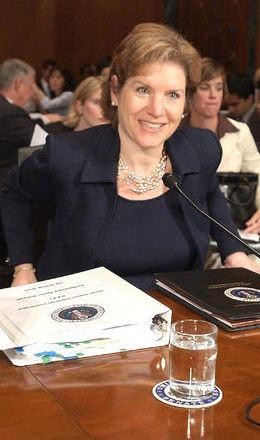 |
Seoul wants to include products from the complex, located in the North Korean city of Kaesong just north of the inter-Korean border, in the FTA. Washington balks at the idea of accepting goods made in a country with which it has no diplomatic ties and with which it is in a standoff over nuclear and missile issues. "Obviously, we have rather significant differences of opinions with Koreans over the issue of Kaesong," Schwab said, adding later, "It's not part of the trade agreement." A total of 13 South Korean firms operate factories with the cheap but skilled North Korean labor in the pilot zone of the Kaesong complex, which was made available in June 2004. Ten other firms are constructing factories in another pilot zone that opened last September. The Kaesong complex is a key product of the 2000 summit between the leaders of the Koreas, which boosted reconciliation and cooperation programs involving the two countries. She named agriculture as one of the other tough issues with South Korea. "I don't have to tell you that Korean rice farmers are obviously concerned about this agreement," she said. Farmers form the strongest opposition to the envisioned trade pact which, in theory, would eliminate all tariff and non-tariff barriers on goods and services flowing between the two countries. They fear that cheap imports will take away their livelihood. South Korea and the U.S. will hold their third round of FTA negotiations in Seattle next month, the first talks since they exchanged proposals on the extent and timing of tariff reductions. Negotiators of both sides have said difficult bargaining will begin in the upcoming round. But Schwab said she was still optimistic about meeting the negotiation deadline, although she acknowledged it would be tough. "With Korea, as always, it takes two to tango. These are tough decisions, both for us and Koreans," she said. "Our goal is to conclude the FTA by the end of the year." Both South Korea and the U.S. knew how tough it will be when going into the talks, she said, adding there is no guarantee of success. "But (the TPA) focuses the mind," said Schwab. Washington, Aug. 20 (Yonhap News)






